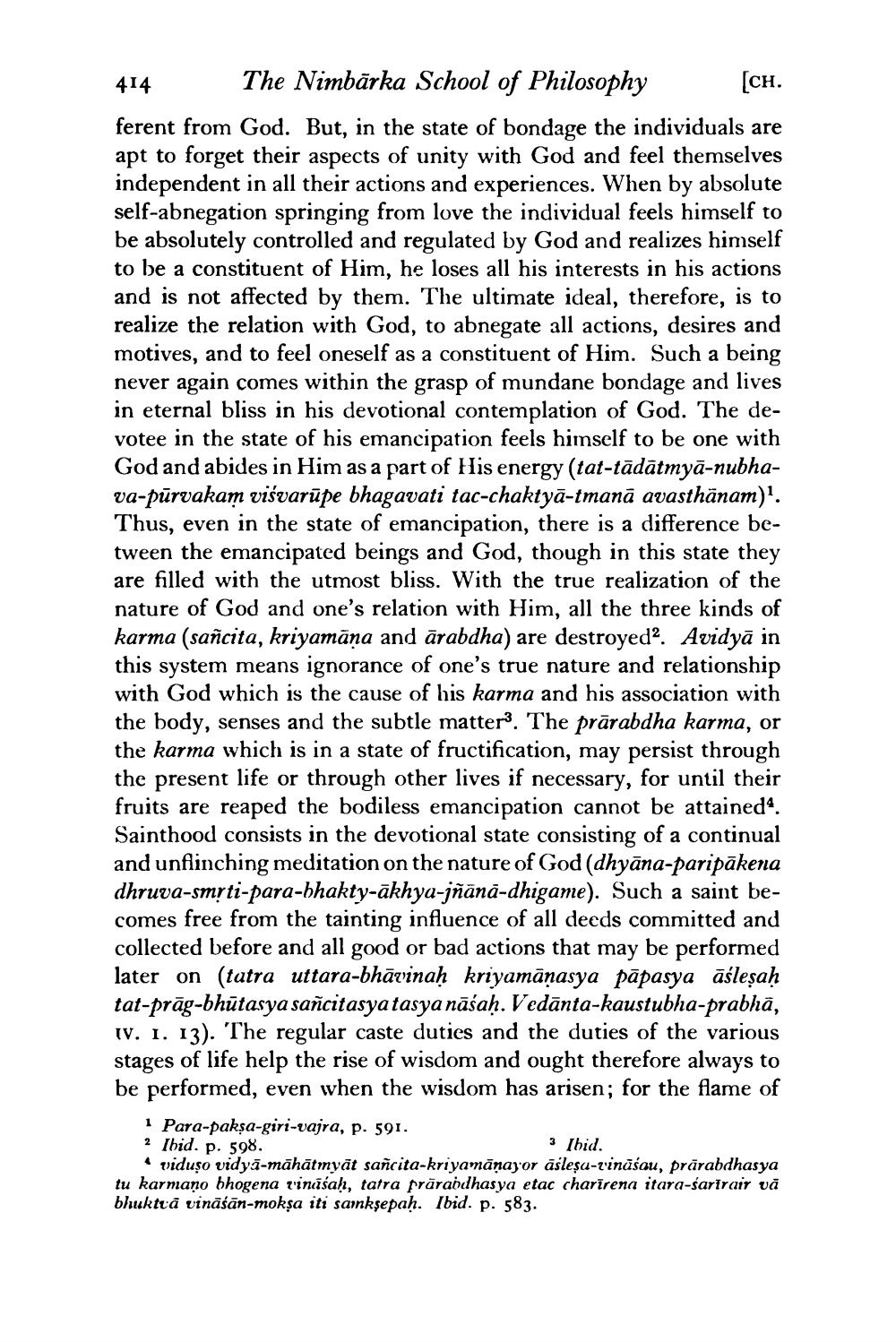________________
414 The Nimbārka School of Philosophy [CH. ferent from God. But, in the state of bondage the individuals are apt to forget their aspects of unity with God and feel themselves independent in all their actions and experiences. When by absolute self-abnegation springing from love the individual feels himself to be absolutely controlled and regulated by God and realizes himself to be a constituent of Him, he loses all his interests in his actions and is not affected by them. The ultimate ideal, therefore, is to realize the relation with God, to abnegate all actions, desires and motives, and to feel oneself as a constituent of Him. Such a being never again comes within the grasp of mundane bondage and lives in eternal bliss in his devotional contemplation of God. The devotee in the state of his emancipation feels himself to be one with God and abides in Him as a part of His energy (tat-tādātmyā-nubhava-pūrvakam višvarūpe bhagavati tac-chaktyā-tmanā avasthānam)". Thus, even in the state of emancipation, there is a difference between the emancipated beings and God, though in this state they are filled with the utmost bliss. With the true realization of the nature of God and one's relation with Him, all the three kinds of karma (sañcita, kriyamāna and ārabdha) are destroyed?. Avidyā in this system means ignorance of one's true nature and relationship with God which is the cause of his karma and his association with the body, senses and the subtle matter. The prārabdha karma, or the karma which is in a state of fructification, may persist through the present life or through other lives if necessary, for until their fruits are reaped the bodiless emancipation cannot be attained4. Sainthood consists in the devotional state consisting of a continual and unflinching meditation on the nature of God (dhyāna-paripākena dhruva-smrti-para-bhakty-ākhya-jñānā-dhigame). Such a saint becomes free from the tainting influence of all deeds committed and collected before and all good or bad actions that may be performed later on (tatra uttara-bhāvinaḥ kriyamāṇasya papasya āśleşaḥ tat-prāg-bhūtasya sañcitasya tasya nāśaḥ. Vedānta-kaustubha-prabhā, W. 1. 13). The regular caste duties and the duties of the various stages of life help the rise of wisdom and ought therefore always to be performed, even when the wisdom has arisen; for the flame of
| Para-paksa-giri-vajra, p. 591. 2 Ibid. p. 598.
3 Ibid. viduso vidyā-māhātmyāt sañcita-kriyamānayor āśleşu-z'ināšau, prārabdhasya tu karmaṇo bhogena vināśaḥ, tatra frārabdhasya etac charīrena itara-sarirair vā bhukttă vināśān-mokṣa iti sanksepah. Ibid. p. 583.




